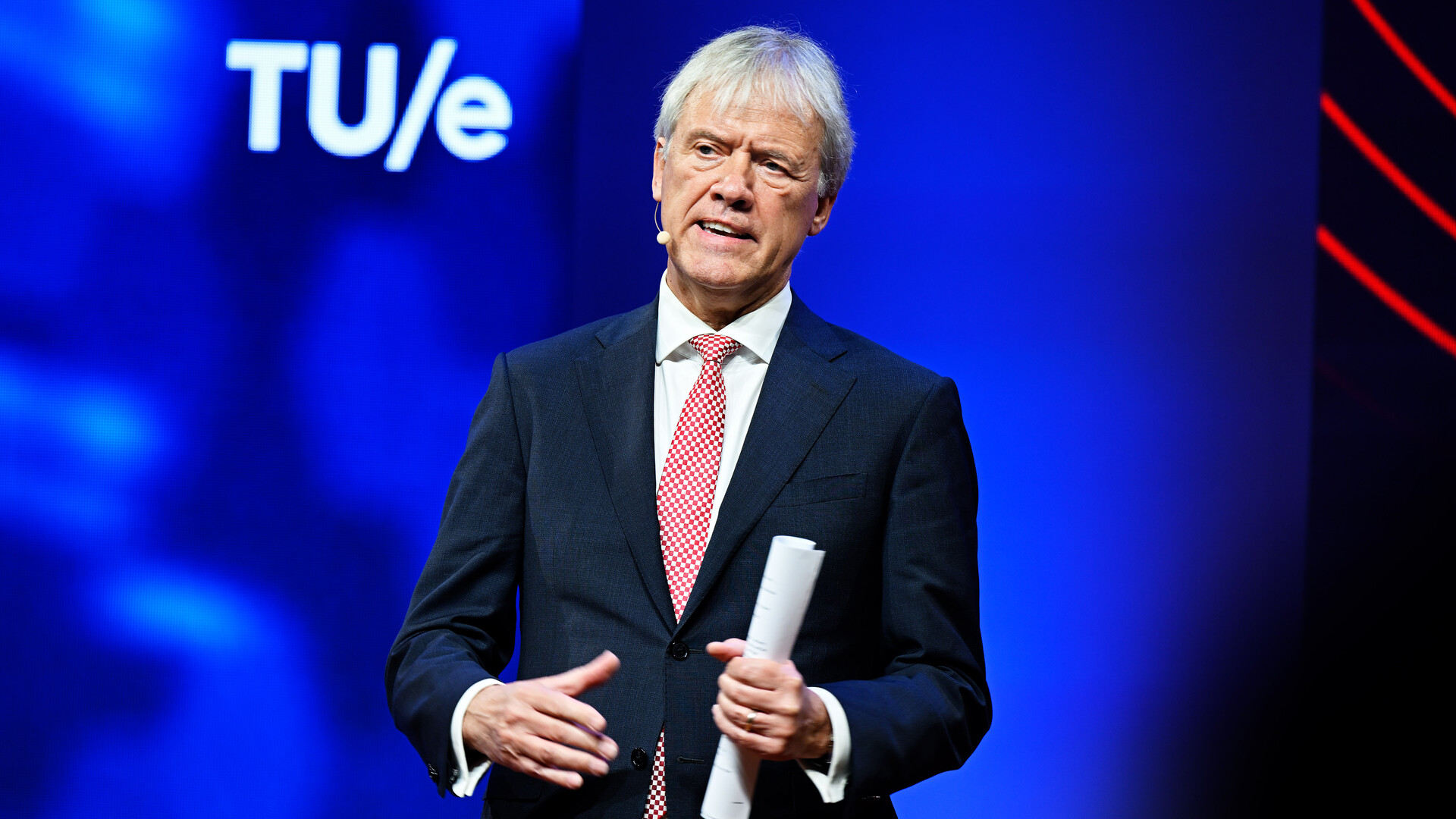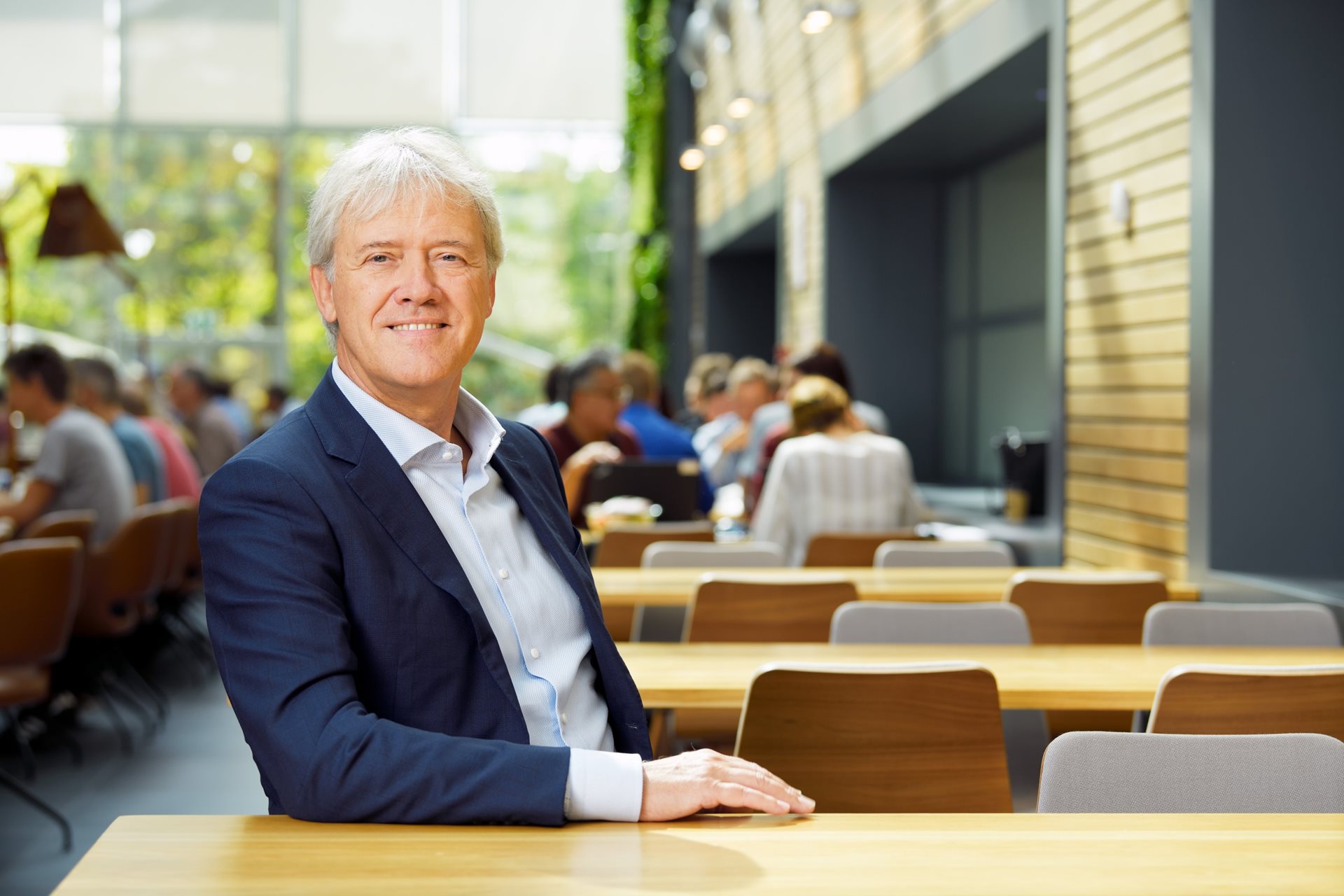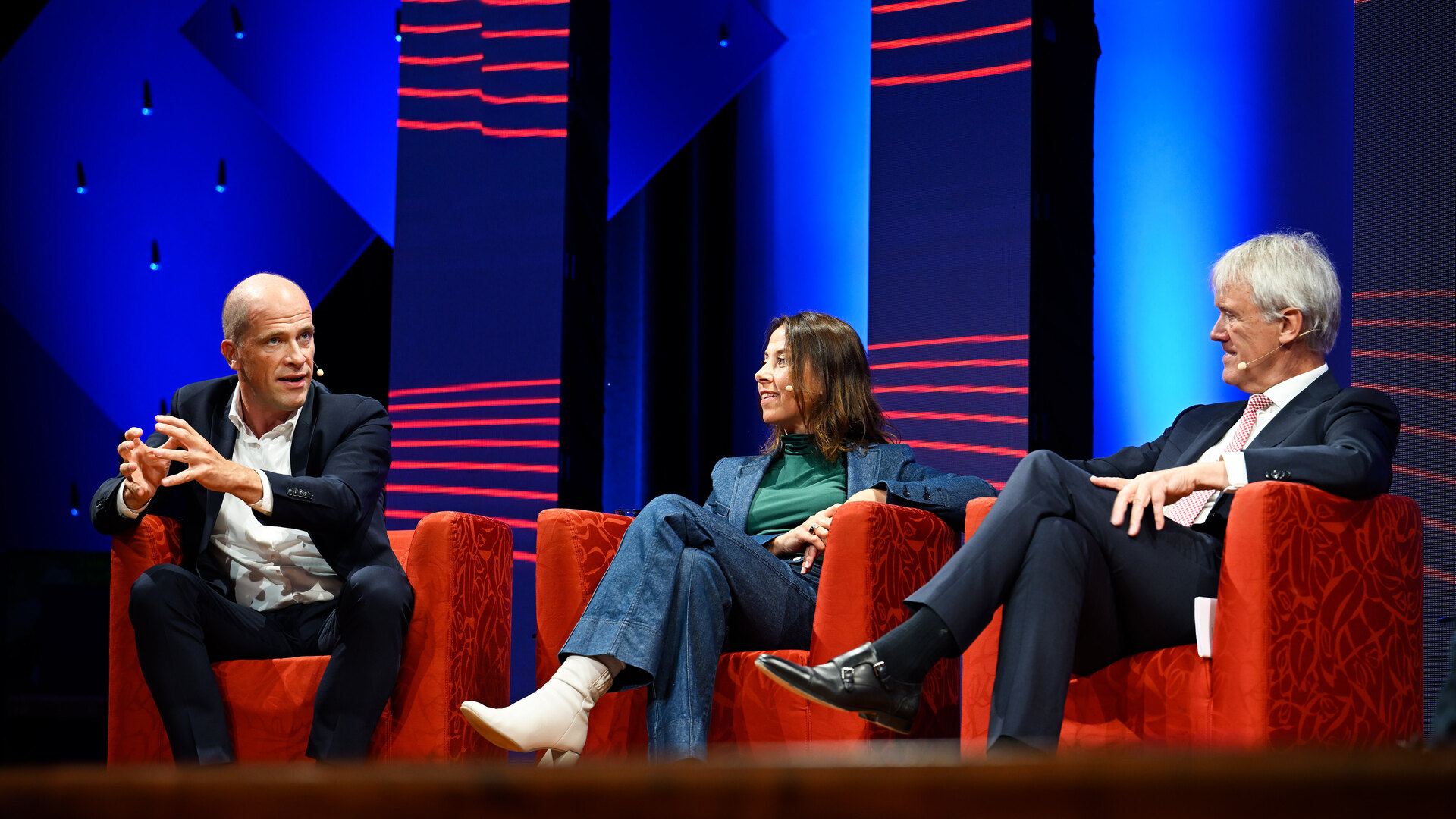4-minute read - By Peter Wennink, September 8, 2023
ASML's CEO Peter Wennink, European Commission’s head of cabinet Diederik Samson and ING's chief economist Marieke Blom discussed boosting Europe and the Netherlands' future earning power through innovation and collaboration at the opening of the academic year at Eindhoven University of Technology (TU/e). This is Peter Wennink’s speech.
Our world is at a tipping point for change
When I was invited to give this keynote speech, I was asked to talk about the earning power of the Netherlands and Europe. We’ve already discussed the energy transition and climate change, but there are other pressing issues and societal shifts that have a profound impact on our daily lives. Consider digitalization, for example, as well as an aging population. In other words, there are more major, systemic changes happening around us than ever before, and this concerns me. In terms of earning power, I worry that Europe and the Netherlands are falling behind.
We must change. We must collectively identify a new way to address the issues at hand. This is not business as usual. What I fail to see when exploring solutions to these issues is a clear vision – a vision on society and people. We need to approach these issues systemically rather than through point solutions. Many point solutions already exist, but they are disconnected from one another – this needs to change.
We must also take more risks than we’re used to. We have a fairly comfortable welfare state, but if we wish to drive change, we must be willing to take a leap of faith. To achieve our goals, we must work together and be creative.

Everywhere, competition remains rampant
It’s not only up to companies, academia or governments – we need to address these issues together. When you examine the major transitions that are unfolding globally, you will notice that things are progressing faster in other parts of the world. The United States is leading the digital revolution with big tech and is likely too far ahead for anyone to catch up. East Asia, on the other hand, is at the forefront of renewable energy, electric vehicles, materials and battery technology. Essentially, if they are spearheading those transitions, and we're concerned about earning power, guess what you'll be buying in 10 to 20 years? You’ll be buying a Chinese car and Japanese materials, because that’s what these countries excel at.
Now is the time to sharpen our focus
Are the problems serious? Yes. Is there anything we can do? Absolutely. In my opinion, we already have world-class academia and top-tier companies at our disposal – what we lack is collaboration between companies and academia, and a government that facilitates it. It’s true that we need subsidies – money will help. However, regulation, legislation, incentives, and the creation of platforms that promote collaboration among industry, academia and governments are much more important.
So, what should governments do differently? It’s imperative that they zero in on a single vision. Currently, we’re at a disadvantage because governments and politics are fragmented, and we’re only considering point solutions because they attract more media attention. There is no long-term vision or focus.
Let me give you an example of why focus matters. I was in South Korea a few weeks ago, and the South Korean president took an hour of his time to discuss the strategic priorities of South Korea, and he explained that South Korea is poised to become the world’s leading semiconductor ecosystem, because semiconductors are the cornerstone of all their innovations. Then, he started talking about ASML, and gave me a complete overview of our product portfolio. Imagine our prime minister doing that – it simply does not happen. Indeed, it’s all about focus – the need for a unified vision. And when we work together, it’s not only about collaboration among academia, industries and governments, but also inside the government itself. Interdepartmental focus is essential. In my experience working with the government, departments are often too siloed, so we need to set a clear objective and bring everything together under one umbrella.
Combating complacency through innovation and collaboration
The industry faces an urgent task: it must overcome complacency. The industry carries the same duty as the government and academia to maintain a responsible society. A responsible society is, in my book, one in which everyone has a job and can afford a decent roof over their heads and food on the table, and one in which every child has access to education, medical care, and safety – both digital and physical – as well as climate security.
I’m also certain that our employees will become better at their jobs once they stop worrying about the issues I just listed. This is where industry and business must take initiative. They must actively approach academia and governments to make this happen, and I believe we have all the right companies and academic know-how to do so.
When it comes to academia, during my discussions about collaboration models, I continue to hear concerns that collaboration with business will jeopardize scientific integrity. This is not true. To tackle the enormous societal challenges we face today, we need all the necessary building blocks and knowledge available across sectors. I’m convinced of this, because ASML has been collaborating closely with this university, and I'm confident that scientific integrity was safeguarded every step of the way.
In closing, I would like to circle back to my point about complacency. Looking at our society, I sometimes get the impression that we are, as they say “fat, dumb and happy.” We are resting on our laurels. Things are changing more rapidly than we realize. We must step up and make the best use of the resources we have, continue to build on our successes and ensure a responsible society. If we don't, value will start shifting to other parts of the world – and guess what will happen next?
This is why innovation is critical, and I believe we should abandon terms like 'industrial policy.' Instead, let's open up the conversation about creating an ‘innovation policy.’
Finally, I believe we are well positioned to achieve our goals. As we always say at Brainport Eindhoven: “the bigger the problem, the bigger the innovation.”
Thank you very much.
About the speaker:

Peter Wennink
President & CEO of ASML



